Folliculitis
Folliculitis is a common hair follicle infection that causes red bumps, itchiness, and sometimes pus-filled blisters. It often develops in areas prone to friction or hair removal, such as the face, neck, thighs, and buttocks. This condition can result from bacterial or fungal infections, irritation from shaving, or tight clothing.
At Pinnacle Dermatology, our expert providers offer targeted treatments to relieve discomfort, prevent recurrence, and restore your skin’s health. Read on to learn more about folliculitis and how we can help you achieve clearer, healthier skin.
Examples of Folliculitis
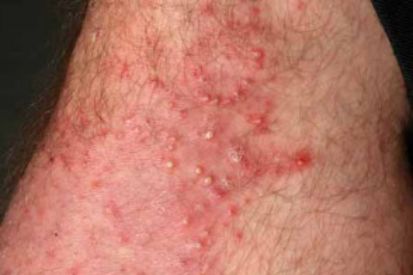
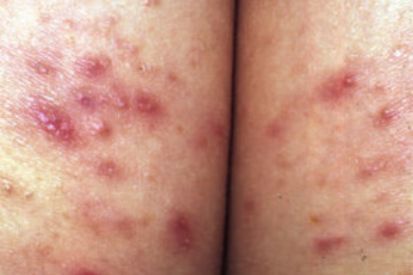
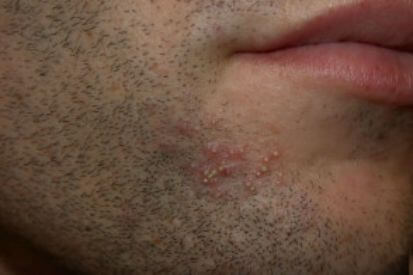
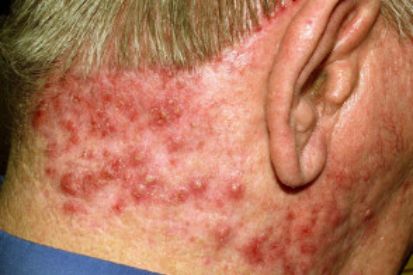
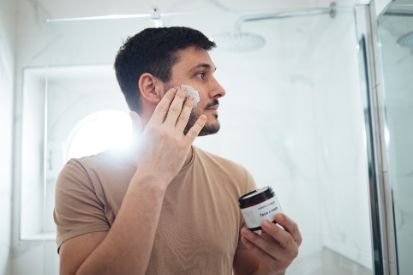.jpg)
Types of Folliculitis
Hair folliculitis may vary in severity, ranging from mild surface irritation to deep infections that cause pain and scarring. Although this condition typically affects areas more susceptible to friction or shaving, folliculitis may also develop on the hands due to frequent contact with bacteria, irritants, or contaminated surfaces. Below are the most common types of this condition:
Superficial Folliculitis
Superficial folliculitis is a mild form of hair follicle infection that affects the upper part of the follicle. It typically appears as small red bumps, pus-filled blisters, or patches of itchy, inflamed skin. Bacterial or fungal infections, friction from clothing, or irritation from shaving often trigger this condition.
Deep Folliculitis
Deep folliculitis is a more severe form of hair follicle infection that penetrates deeper into the skin, affecting the entire hair follicle. This condition can lead to painful swelling, large pus-filled bumps, and, in some cases, permanent scarring or a follicular cyst. Bacterial infections, ingrown hairs, or friction from tight clothing often cause deep folliculitis. The infection can worsen if left untreated, leading to long-term skin damage.
Folliculitis on Hands
Folliculitis on the hands is less common than on other areas of the body. However, it can still occur due to frequent exposure to bacteria, repeated handwashing, or irritation from harsh chemicals. This type of hair follicle infection often appears as small red bumps or pus-filled pustules around the hair follicles on the back of the hands or fingers. People who work with chemicals, wear gloves for extended periods, or have dry, cracked skin may be more prone to folliculitis on the hands.
What are the Symptoms of Folliculitis?
Folliculitis can cause discomfort and irritation, affecting areas where hair follicles become inflamed or infected. If you're experiencing the following folliculitis symptoms, Pinnacle Dermatology can offer expert care to diagnose and treat a hair follicle infection.
- Itchy or painful bumps around hair follicles
- Clusters of red bumps or pus-filled blisters
- Red, inflamed, or tender skin
- Persistent itchiness or soreness
- Possible scarring after the infection clears
Causes of Folliculitis
Certain lifestyle factors and skin conditions can increase the risk of developing this hair follicle infection, leading to discomfort and potential complications. Understanding these causes is essential for preventing folliculitis and reducing flare-ups. Common causes of folliculitis may include:
- Shaving, which can cause irritation or ingrown hairs
- Friction from tight clothing
- Excessive sweating, especially in humid conditions
- Skin inflammation from underlying conditions like eczema
- Skin injuries that allow bacteria to enter the follicles
- Non-breathable materials, such as adhesive tape on the skin
- Bacterial, viral, or fungal infections
How to Prevent Folliculitis
- Gentle Shaving Techniques: Use a sharp, clean razor and shave in the direction of hair growth with minimal pressure to reduce irritation.
- Maintaining Skin Hygiene: Cleanse the skin regularly with mild, fragrance-free soap to remove potential irritants and bacteria.
- Avoiding Tight Clothing: Wear loose, breathable fabrics to minimize friction and allow the skin to breathe.
- Proper Wound Care: Treat cuts, scrapes, or skin injuries promptly to prevent bacterial infections that may lead to folliculitis.
- Hydration and Moisturization: Keep the skin well-hydrated with dermatologist-recommended moisturizers to maintain a strong skin barrier.
Skin Moisturizing Tips To Help Prevent Folliculitis
Folliculitis Treatment
Common treatment modalities include:
- Topical Antibiotics or Antifungals: For mild cases, we may prescribe topical antibiotics or antifungal creams to target the bacterial or fungal infections causing folliculitis.
- Oral Medications: In more severe or recurrent cases, oral antibiotics or antifungal medications may be recommended to treat the infection from within.
- Corticosteroids: Topical or oral corticosteroids help alleviate inflammation, reducing redness and itching associated with folliculitis.
- Laser Therapy: Our dermatologists may use laser therapy to target and destroy hair follicles, preventing further outbreaks of chronic or recurrent folliculitis.
Folliculitis FAQs
A dermatologist at Pinnacle Dermatology can diagnose this condition by examining the affected skin and reviewing symptoms. Sometimes, a skin culture or biopsy may be performed to identify the underlying cause, such as bacteria or fungi.
This condition is generally not contagious, but certain types, like those caused by bacteria or fungi, can spread through direct contact or sharing personal items. Practicing good hygiene can help reduce the risk of transmission.
Yes, activities that involve sweating, friction, or prolonged exposure to heat and moisture—such as sports, wearing tight uniforms, or working in hot environments—can increase the risk of folliculitis. Regular skin care and breathable clothing may help prevent flare-ups.
Folliculitis can develop anywhere hair follicles are present, including the scalp, face, chest, back, arms, legs, and even the hands. Folliculitis on the hands is less common but can occur due to friction, bacteria, or prolonged exposure to moisture. Areas prone to shaving, friction, or excessive moisture are especially vulnerable.
Moisturizers can play a role in managing folliculitis, but their effectiveness may vary depending on the underlying cause and type of folliculitis.
In some cases, folliculitis can be exacerbated by dry or irritated skin. Using a gentle, non-comedogenic moisturizer can help maintain skin hydration and reduce irritation, potentially alleviating some symptoms associated with folliculitis. Moisturizers can also aid in supporting the skin's barrier function, which may contribute to overall skin health and help prevent further irritation of hair follicles.
However, it's important to note that while moisturizers can provide relief from dryness and mild irritation, they might not directly treat the infection or underlying cause of folliculitis. If the condition is due to a bacterial or fungal infection, using a moisturizer alone may not resolve the issue, and specific treatments, such as antibiotics or antifungal medications, may be required as prescribed by a dermatologist.
For individuals dealing with folliculitis, especially in cases where moisturizers offer some relief, it's advisable to opt for fragrance-free and non-comedogenic moisturizers to minimize the risk of further irritation or clogging of hair follicles. Consulting with a dermatologist is crucial to determine the appropriate skincare routine and treatment plan tailored to the specific type and cause of folliculitis for effective management.
Featured Blogs
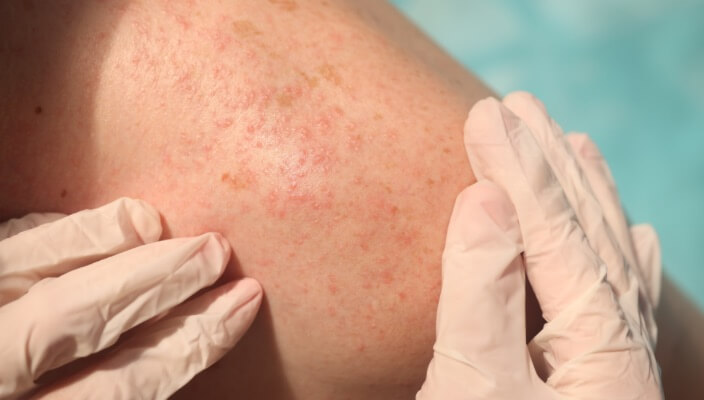
- General Dermatology
- Skin Exams
- Chronic Skin Conditions
Explore our comprehensive guide to gain insights into accurate diagnosis and expert care for chronic skin conditions.
Read More
- Cosmetic Treatments
Laser hair removal has become one of the most popular aesthetic procedures to address unwanted hair on the body.
Read More
- General Dermatology
Explore the intricacies of hyperhidrosis, gaining insights into its two distinct types, and discover professional solutions for effective management of excessive sweating.
Read MoreFeatured Products
Check your local office for current stock!
Check your local office for current stock!


